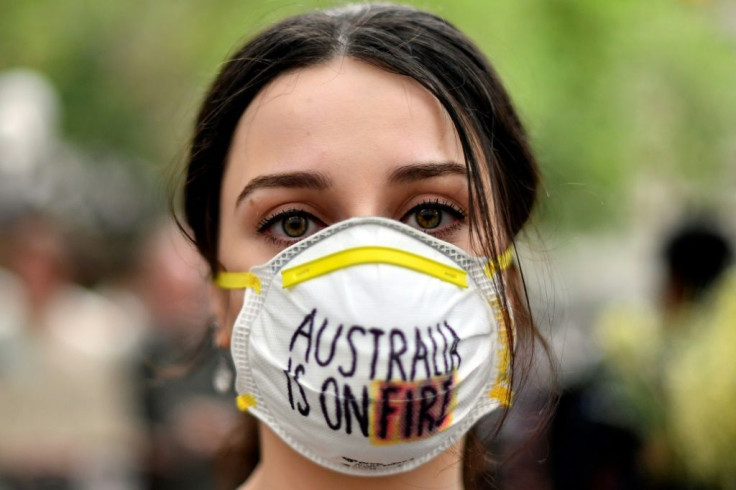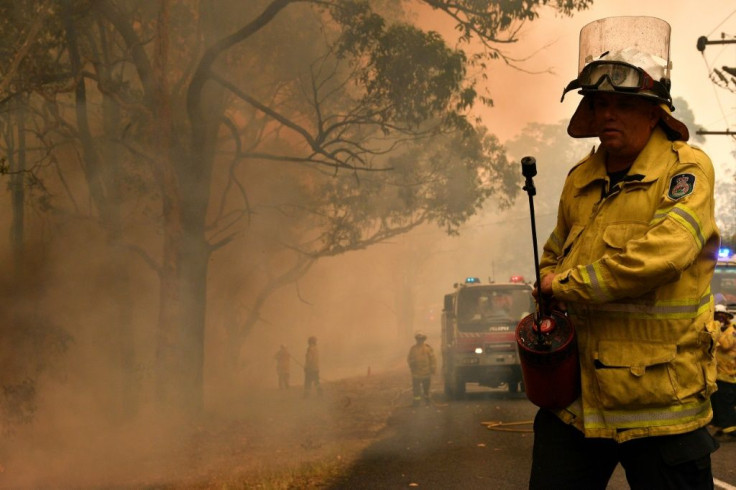Australia Has Its Hottest Day On Record, More To Come

Australia this week experienced its hottest day on record and the heatwave is expected to worsen, exacerbating an already unprecedented bushfire season, authorities said Wednesday.
The average nationwide temperatures of 40.9 degrees Celsius (105.6 degrees Fahrenheit) on Tuesday beat the previous record of 40.3 degrees Celsius in January 2013, the Bureau of Meteorology said.
"This heat will only intensify further today," meteorologist Diana Eadie Said.
The heatwave is another alarm bell about global warming in Australia, where this year's early and intense start to regular summer bushfires has heaped pressure on the Australian government to do more to tackle climate change.
Hundreds of bushfires have been raging across Australia for months, including a "mega-blaze" burning north of Sydney, the country's biggest city.
Smoke from the fires has engulfed Sydney, raising air pollution to hazardous levels in an event leading doctors have labelled a "public health emergency".
At least three million hectares (7.4 million acres) of land has been torched across Australia, with six people killed and about 700 homes destroyed.

Scientists say the blazes have come earlier and with more intensity than usual due to global warming and a prolonged drought that has left the land tinder dry and many towns running out of water.
The fires have sparked climate protests targeting the conservative government, which has resisted pressure to address the root causes of global warming in order to protect the country's lucrative coal export industry.
Record spot temperatures were recorded this week in Western Australia, where firefighters have also been battling blazes raging across thousands of hectares (acres) of land.

The hot weather is drifting across the country's arid centre toward the east.
Parts of New South Wales are forecast to reach the mid-40s celsius (around 110 Fahrenheit) on Thursday.
On Saturday as conditions worsen, west Sydney is due to tip over 46 degrees celsius (115 Fahrenheit).
Turbulent winds of up to 100 kilometres (60 miles) an hour are forecast to also hit the east coast and worsen the blazes.
"Over the next few days we are going to see firefighters, the emergency services and all those communities close to fires... challenged with a new threat," New South Wales fire commissioner Shane Fitzsimmons said Wednesday.
Embers carried by the winds can travel up to 30 kilometres (18.6 miles) from a blaze, authorities said.
"We are going to have a number of fronts that are gong to fuel, or escalate the fires burning, but also the potential to have spot fires and embers travelling very long distances," NSW Premier Gladys Berejinklian warned.
Prime Minister Scott Morrison last week made a rare admission that climate change was one of the "factors" behind the fires.
But he defended the government's record on emissions reduction and failed to announce further measures to address the issue.
Climate protesters plan to march on Morrison's official residence in Sydney this week to rally for change and highlight his absence as large parts of the country burn.
Morrison is holidaying at an undisclosed location overseas.
© Copyright AFP 2024. All rights reserved.





















